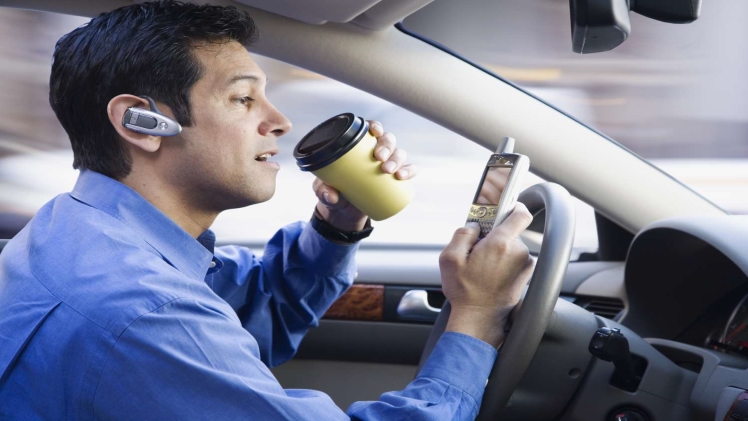According to Pew Research Center, 52% of Americans of 16-17 years used their phone while driving. Today, there are many ways to get distracted beyond talking and texting on cell phones. Before you get behind the wheel, decipher the main differences between physical and mental distractions to keep your eyes on the road (and hands on the wheel) when you are in motion. Read to learn the physical driving distractions beyond cell phones.
Lost In Thoughts
You’re driving and suddenly realize you’re not sure where you are. You can’t remember the last few minutes of your drive. You got lost in thought.
While driving, it’s easy to get distracted by thinking about something else, maybe a conversation with someone else or something that happened earlier in the day. You may even be thinking about something unrelated to driving, like what’s on TV tonight or what groceries you need to pick up at the store. These types of distractions can be dangerous because they take your attention away from the road and put it elsewhere.
Food And Beverages
You might think that eating while driving is no big deal, but it can be hazardous. Eating and drinking while driving distracts you from driving, leading to accidents. In fact, according to the National Highway Traffic Safety Administration (NHTSA), eating while driving increases the chance of a car crash by 80%.
Applying Makeup
Applying makeup is distracting; it requires your hands and eyes to focus on the mirror. You may not even realize you’re doing it, but applying makeup can take up to 10 minutes–and that’s 10 minutes of driving time that you could have spent paying attention to the road.
It’s hard to keep your eyes on the road when you’re busy applying lipstick, eye shadow, and mascara. You could easily miss a vital stop sign or other traffic sign as you focus on putting on your makeup.
Passengers
If you’re driving with a passenger and they start talking to you, it’s easy for that conversation to take over your focus. Suppose the passenger asks for directions or something else that requires your attention. Other passengers in your vehicle can distract you by talking on a cell phone or playing music too loudly.
If you have passengers in the car with you, ensure they know how important it is for you to focus on driving.
Concentrating on Outside Events
It can include anything from looking at billboards to checking your GPS or watching other cars go by. These distractions will not only take your focus away from the road but also increase your risk of crashing into another vehicle or object.
Also, if you’re driving and see something happening on the side of the road, like an accident or someone waving for help, it can be hard not to look over to see what’s happening.
Adjusting Dashboard Controls
Drivers get distracted by adjusting their car’s temperature controls, radio, and other features. It causes drivers to take their eyes off the road for long periods and make them less aware of what’s happening around them.
You should only adjust these controls if you have pulled over to a safe area and have come to a complete stop.
Listening to Conversations on Radio
You may think listening to the radio is harmless, but it’s not. While driving and listening to the radio, you get distracted by the conversation. You might even find yourself laughing or crying at something on the radio, which can lead to accidents if you aren’t paying attention.
In addition, listening to the radio can make it difficult for you to hear other sounds around you–like horns honking or sirens blaring which could also lead to an accident if you don’t notice them in time.
To avoid this problem, turn off the radio when you get in your car. If you must listen to something while driving, ensure it doesn’t require your attention or participation.
Reading Maps or Directions
It takes your eyes and mind off the road, which means you’re not paying attention to what’s happening around you. You could miss a stop sign or an upcoming turn.
The cell phone may be the most apparent driving distraction, but it’s certainly not the only one. Even though you probably feel as if you’re checking your rearview mirror, something else, or relaxing your hands on the wheel and fingers on the shift knob, you might still be accidentally engaging in driving distractions that put you and others in danger. Physical driving distractions are challenging to address because we can’t just control the other people on the road. Therefore, people should be responsible.

